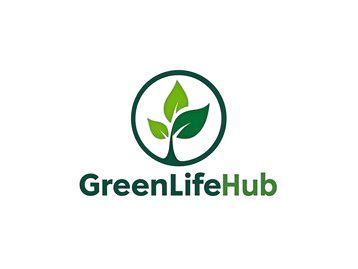Introduction to basics of energy efficiency!
Energy efficiency is more than just a buzzword: it’s a crucial aspect of how we manage and consume energy in our daily lives. But why is understanding the basics of energy efficiency so important? At its core, energy efficiency refers to the practice of using less energy to perform the same task or produce the same outcome. By optimising how energy is used, we can reduce wastage and make better use of our resources.
Understanding the importance of energy efficiency is pivotal in addressing global energy challenges. Not only does it help reduce greenhouse gas emissions and dependence on fossil fuels, but it also plays a significant role in lowering energy costs for households and businesses alike. Imagine the impact if every household reduced their energy consumption by even a small margin collectively, these changes can lead to massive energy savings.
The benefits of understanding the basics of energy efficiency extend beyond just saving money. From an environmental perspective, it contributes to lowering pollution levels and mitigating climate change. Economically, it offers a boost by creating jobs in green technology sectors and reducing overall energy costs, which can be redirected to other critical areas in society. Socially, it can enhance living conditions by improving the comfort and quality of homes and workplaces. Overall, energy efficiency is a win-win, offering a path to a more sustainable and economically stable future.
Unpacking the mechanics of energy efficiency
Understanding the basic mechanics of energy efficiency requires diving into its core principles. At its essence, energy efficiency involves optimising the use of energy sources to achieve the same results without unnecessary waste. This principle can be applied across different sectors, each with its unique challenges and methods for improvement.
Households
In households, energy conservation often starts with simple changes like switching to LED lighting or using energy-efficient appliances. These options not only consume less power but often offer enhancements in performance and longevity. On a larger scale, industries can adopt energy-efficient machinery and operational processes to cut down on energy usage, leading to significant cost savings.
Technology
Technology plays a pivotal role in advancing energy efficiency. From smart home devices that regulate heating and cooling systems to industrial IoT solutions for monitoring energy consumption, technological advancements offer tools that make managing and reducing energy use more accessible and effective. Staying updated with the latest technologies can provide a substantial boost to any energy efficiency strategy.
Incorporating energy efficiency measures is a strategic decision that can yield economic benefits over time. Whether through adopting new technologies or implementing policy changes within organisations, understanding and leveraging the mechanics of energy efficiency can lead to substantial long-term gains. These efforts require ongoing assessment and adjustment, but the potential rewards make it a journey worth pursuing.
Exploring types of energy efficiency measures
There are many ways to enhance energy efficiency, each tailored to individual lifestyles and sectors.
- Behavioural changes are a great starting point. Simple habits like turning off lights when not in use or setting thermostats to an optimal temperature can go a long way in conserving energy. These small shifts in behaviour can lead to meaningful reductions in energy consumption over time.
- When it comes to appliances, opting for energy-efficient models can make a significant impact. Look for appliances with high Energy Star ratings, as they reduce energy usage without sacrificing performance. From refrigerators to washing machines, these appliances use advanced technology to operate more efficiently, which can result in lower electricity bills and less environmental impact.
- Upgrades to homes and commercial buildings also play a crucial role in boosting energy efficiency. Insulating walls and roofs, installing double-glazed windows, and using high-efficiency heating systems can dramatically reduce energy loss. Additionally, integrating renewable energy sources, like solar panels, can supplement traditional energy needs, offering long-term savings and sustainability.
Choosing the right mix of energy efficiency measures can vary based on individual circumstances, such as climate, building type, and existing infrastructure. Therefore, it’s essential to assess current energy usage and identify opportunities where improvements can be made. Combining different strategies creates a comprehensive approach that can maximise the benefits of energy efficiency.
Measuring energy efficiency: How to gauge progress?
Measuring energy efficiency is crucial for understanding the impact of various conservation efforts and identifying areas for further improvement.
- To start, consider the metrics that assess energy efficiency levels. These metrics can include energy intensity, which measures energy consumption per unit of output or service. By tracking these metrics over time, individuals and businesses can gain a clearer picture of their energy use and the effectiveness of their efficiency measures.
- Energy audits offer significant advantages when identifying efficiency gaps in residential or commercial settings. During an audit, professionals examine energy use patterns and provide recommendations tailored to specific needs. These assessments can reveal simple changes that lead to significant savings, addressing everything from insulation issues to appliance inefficiencies.
- Numerous tools and resources are available to assist in measuring energy efficiency. From smart meters that provide real-time energy usage data to software solutions that analyse consumption patterns, these tools make it easier to track progress and make informed decisions about energy use. Online calculators and guides can also help you estimate potential savings from various upgrades or changes.
Staying informed and utilising these resources empowers individuals and businesses to take control of their energy efficiency journey. With precise measurements and informed insights, it’s easier to achieve energy saving goals and contribute to a more sustainable future.
Financial aspects of energy efficiency: Costs and savings
Energy efficiency isn’t just about saving the environment; it can also lead to significant financial benefits.
- One of the key financial benefits comes from reducing energy bills. Over time, even small reductions in energy use can add up to substantial savings. For example, switching to energy-efficient lighting or appliances might seem like a minor change, but it can contribute meaningfully to lower monthly expenses.
- When considering energy efficiency measures, it’s essential to weigh the initial costs against the potential long-term savings. While upgrades like better insulation or more efficient HVAC systems do require upfront investments, these can often pay for themselves over time through reduced energy bills. It’s a trade-off that can lead to greater financial stability both for households and businesses over the years.
- Additionally, many areas offer incentives and rebates for implementing energy efficiency improvements. These can significantly offset initial costs, making it more accessible for those who might be hesitant due to budget concerns. Researching available programs and understanding what’s on offer can unlock valuable opportunities for financial assistance.
Incorporating energy-efficient practices doesn’t just save money but can also increase property values. Energy efficient homes and buildings are increasingly attractive in the real estate market, appealing to buyers who are conscious of long-term costs. These strategies can transform how you manage your resources today, leading to lasting benefits that extend beyond immediate financial savings.
Overcoming hurdles in implementing energy efficiency
Implementing energy efficiency can present some challenges, but many of these obstacles are based on myths or misconceptions.
For example, a common belief is that energy-efficient solutions offer less performance than traditional ones.
In reality, modern energy-efficient technologies often match or exceed the performance of their older counterparts.
Barriers can arise for both homeowners and businesses attempting to increase their energy efficiency. High initial costs, lack of awareness about available technologies, and technical challenges are frequent deterrents. Moreover, the complexity of selecting the right solutions can make the process seem daunting.
Addressing these challenges starts with education and accessible information about the proven benefits of energy efficiency. This involves dispelling myths, showcasing success stories, and highlighting tangible benefits. For homeowners, simple upgrades and behavioural changes can serve as an entry point, while businesses might benefit from detailed energy audits that identify efficient pathways forward.
Local governments and businesses can help by promoting incentives and educational initiatives that make energy-efficient options more visible and financially viable. Collaborating with energy efficiency experts can also streamline the process, providing personalised advice and updates on the latest innovations.
Overcoming these barriers not only requires motivation but also the right resources and support. By focusing on the advantages and creating an environment that fosters informed decision-making, the path to effective energy efficiency becomes clearer and more achievable for everyone.
Embarking on your energy efficiency journey
Starting your journey toward better energy efficiency doesn’t have to be overwhelming. For individuals, practical steps like assessing your current energy use can be enlightening. Take note of where energy consumption is highest and consider small adjustments, such as upgrading to energy-efficient lighting and utilising smart home technology to better control energy usage.
Businesses can implement energy efficiency strategies by conducting comprehensive energy audits, which pinpoint inefficiencies and suggest tailored solutions. These might include installing energy-efficient equipment, optimising operational procedures, and training staff on sustainable practices.
There are abundant resources available to support those interested in learning more and making informed decisions. Online courses, government programs, and consultations with energy professionals can provide valuable insights and guidance.
Future of energy efficiency
Looking into the future, energy efficiency continues to evolve with emerging trends and innovations. From smarter building technologies to policy shifts that encourage sustainable practices, staying informed about these developments can help individuals and businesses remain at the forefront of efficiency efforts.
Policy changes can also have a significant impact on energy efficiency initiatives. Keeping abreast of legislative updates and industry regulations ensures compliance and unlocks opportunities for incentives and advancements in energy practices.
Innovation in this field is growing rapidly, offering new tools and methods to enhance energy conservation. Whether through advanced materials for building construction or cutting-edge smart grid technologies, the future of energy efficiency is bright and full of potential opportunities for those ready to explore them.
Interesting Read;
Best tips to reduce energy consumption at home?
kaleem,
greenlifehub.com

